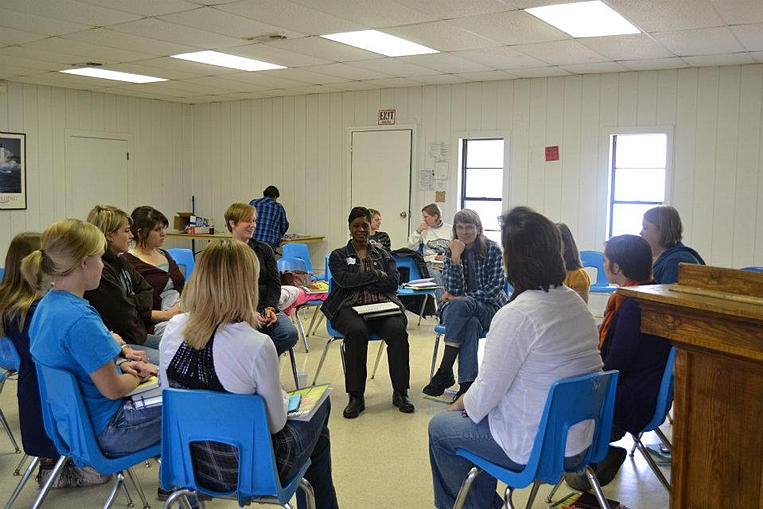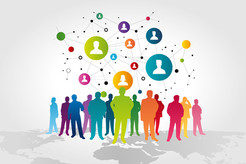Mathew Lowry asks me some interesting questions about the Manifesto for Agile Development of Democracy (#MDAD). Thanks for that ! Here are my answers :
“ It leaves me perplexed for two reasons.
To begin with, you claim it values “Individuals and their discussions … democracy and citizenship … Collaboration with the citizens” and so on more than anything else. But was it actually created through a democratic, collaborative process with citizens, or just dreamt up by you in your bedroom?”
Firstly : the origin of the idea comes from my own experience as citizen activism with NewropMag team, my experience about how to introduce agile practices into complex organizations, and previous work. And I give in the first sentence the link for detailed explanations (in French : you have to use Google translate, sorry) why this MDAD proposition is not Utopia, nor even Realistic Utopia : De l’utopie réaliste à l’anticipation politique. BTW, you seem to be sarcastic when you use the verb “dream”, don’t you ?
Secondly : the Manifest is not in its final version ! You should have noticed the “v20111210” version number and the CC licence. This manifesto is intended to be improved using the same principles described in the manifesto : “eat your own dog food” recipe is very efficient for improvement. So if you like to contribute (or even fork), please do !
Secondly, I use Agile development at work to build opensource websites, and I don’t really see the link between it and your Manifesto. You use some agile language when you talk about optimizing for democracy (“policies with high added value for democracy … Agile political processes harness change for the citizen’s advantage … Define evolution of a real democracy with a frequency of several weeks”).
Why would you think building software is fundamentally different than building anything else ? I had the luck in my life to work in very different domains and to study even more ones, and by essence they are all the same : what is important is not what you are building, but the team who is building. The relations between the people. The stronger you can make them, the better the result will be.
Looks to the Agile Manifesto for Software Development. What did they say ? Exactly that. And they have defined principles to optimize these relations.
Now looks to public policies. It is another name for “defining rules to better live together”. Doesn’t it look similar to defining the correct software requirements ? So why some Agile principles would not be a relevant answer to optimize the way they are defined ? I’m quite sure they are.
However, you don’t propose any indicators, nor measurement methods, nor arbitrators. Who is the client? Who is the project manager?
I could have proposed some of them, it’s pretty easy when you have accepted in your mind the underlying logic. But firstly I think the process to define MUST be fully collaborative, and secondly it is a goal for the second part of the story. The first part if to have this Manifesto improved, translated then signed by as many people as possible, who will agree to sign a few sentences they can quickly understand and approved (nothing is hidden in the middle of hundreds or thousands of pages).
And most important, this MDAD Manifesto does not deal with a single one set of democratic processes : like with software development, many different Agile methods can be defined and used : all are different by some aspects, but all are Agile if they respect the Agile Manifesto principles. None are systematically better than any other. It is the same for democratic processes. Do not start by thinking a single one democratic process "one size fits all" is the obvious way. It is not. That's why we need to define upfront common principles at a upper conceptual layer. Theses principles can then be realized (implemented) differently within different contexts, allowing more efficiency, and more opportunities for people to adopt the principles. It worked like this for Agile Manifesto and changed the way almost all new software is done on earth. KISS recipe at work.
Do you think your remark is relevant when you decided to sign the Agile Manifesto for Software Development (you said you are using Agile methodology in your development work) ? Of course not.
But if you want to proceed even further, here is the mapping I created between software development roles and roles in an Agile Democracy, and between activities :
software
|
Real Democracy
|
individuals (speaking
of team member)
|
(Same)
|
Cascade or « V
style » development process
|
Current membership of
parliament
|
interactions
|
Debate
|
tools
|
Current institutions
|
client
|
Citizen
|
fonctionnalities
|
Public policies
|
Working software
|
(set of public policies
defined using) real democratic processes
|
documentation
|
Rights, rules
|
to deal a contract before
realizing the project
|
To negotiate an electoral mandate based on the promises of a defined political agenda. |
change management
|
Policies adaptation and
political anticipation
|
Follow a plan
|
Follow a defined political
agenda (or your own)
|
Deliver software
|
Define public policies
|
business people
|
An elected person
|
Business sponsor
|
Sponsor (Current institutions,
NGO, think tank…)
|
Product Owner
|
An elected person
|
Product Owner Proxy
|
Technocrat, civil
servant (non elected person)
|
Scrum Master
|
A member of the team who
helps others to follow the chosen Agile Democracy methodology
|
developers
|
Members of citizen
think tank or workgroup
|
development team
|
citizen think tank or
workgroup, members of civil society
|
End user
|
Citizen
|
development
|
Definition of public
policies or strategic recommendations
|
Agile coach
|
Coach in Agile
Democracy
|
External parties
|
Lobbies
|
"Your manifesto’d be hijacked by undemocratic interests in months, if not weeks."
To my mind, undemocratic interests are only moving in reactive mode. They
simply ignore what they cannot see. They will be interested in MDAD only when
it will be a success, means too late. And before that day, what hijack can they
do with just an idea and a text under CC licence ?
Mathew, I hope you can participate and improve this MDAD initiative. Just by asking more
questions if you wish.


